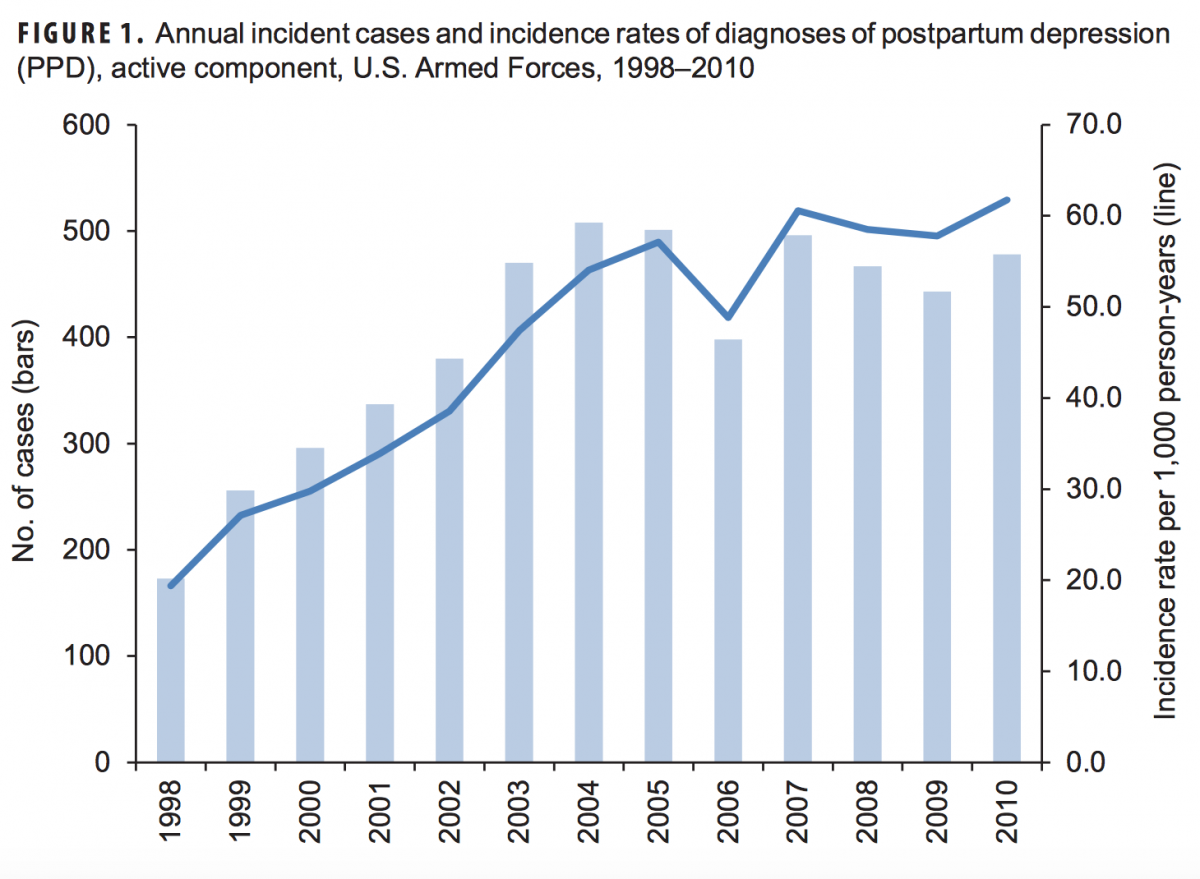By the Numbers - June 29, 2015
44.9 cases per 1,000 person-years
The "incidence rate" of postpartum depression (PPD) among "126,006 primiparous (active duty) service women without histories of previous mental health diagnoses" between 1998 and 2010, according to a study in the June issue of the Medical Surveillance Monthly Report, a publication of the Armed Forces Health Surveillance Center.
In the study -- Risk of Mental Health Disorders Following an Initial Diagnosis of Postpartum Depression, Active Component, U.S. Armed Forces, 1998–2010
-- the researchers note that those diagnosed with PPD were at higher subsequent risk of depressive, anxiety and bipolar disorders. Also, according to the researchers:
Those active component females who do experience PPD have a 42.2-fold increased adjusted odds of having suicidality in the postpartum period when compared to service women without PPD.13 Furthermore, deployment less than 6 months after delivery confers a 37% increased risk of mental health issues within 6 months of redeployment when compared to postpartum active component military mothers who were deployed much later, suggesting that the peripartum period may confer additional risk for mental health issues.

MSMR Vol. 22 No. 6 June 2015
44.9 cases per 1,000 person-years
The "incidence rate" of postpartum depression (PPD) among "126,006 primiparous (active duty) service women without histories of previous mental health diagnoses" between 1998 and 2010, according to a study in the June issue of the Medical Surveillance Monthly Report, a publication of the Armed Forces Health Surveillance Center.
In the study -- Risk of Mental Health Disorders Following an Initial Diagnosis of Postpartum Depression, Active Component, U.S. Armed Forces, 1998–2010
-- the researchers note that those diagnosed with PPD were at higher subsequent risk of depressive, anxiety and bipolar disorders. Also, according to the researchers:
Those active component females who do experience PPD have a 42.2-fold increased adjusted odds of having suicidality in the postpartum period when compared to service women without PPD.13 Furthermore, deployment less than 6 months after delivery confers a 37% increased risk of mental health issues within 6 months of redeployment when compared to postpartum active component military mothers who were deployed much later, suggesting that the peripartum period may confer additional risk for mental health issues.
MSMR Vol. 22 No. 6 June 2015

